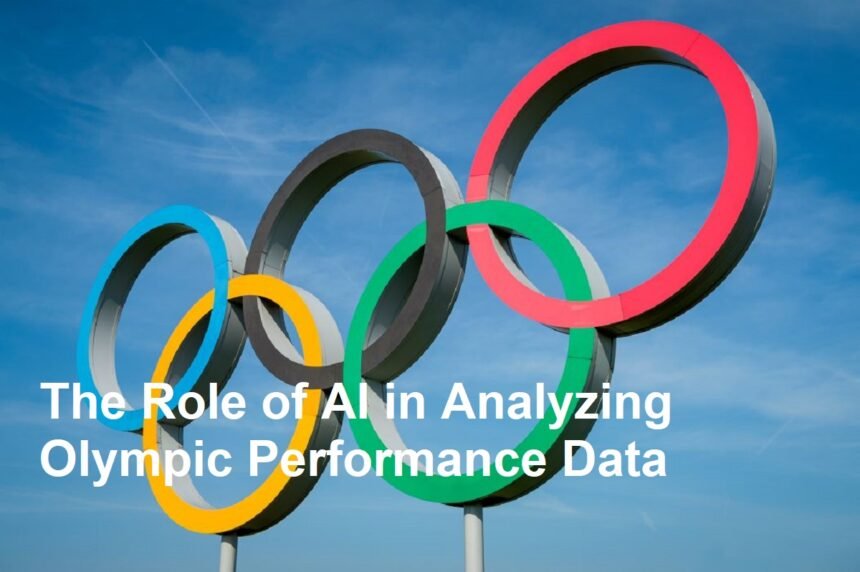Introduction
Every four years, the world gathers to witness the greatest athletes compete on the grandest stage—the Olympics. But behind the breathtaking performances lies a powerful tool reshaping how athletes train, perform, and recover: artificial intelligence (AI).
Today, AI in Olympics is more than just a buzzword. It’s revolutionizing sports analytics Olympics, providing AI training insights that help athletes achieve record-breaking results. Whether it’s tracking sprint times, analyzing swimming strokes, or even predicting injury risks, AI is transforming how we view athletic excellence.
This article explores how AI is used in the Olympics, the benefits and challenges, and practical tips for athletes, coaches, and fans who want to understand this exciting trend.
Why AI in Olympics Matters
Data Is the New Gold Medal
Modern sports generate an overwhelming amount of data—split-second timings, heart rate levels, muscle movement, and even facial expressions under pressure. AI makes sense of this mountain of information by identifying patterns and insights that human eyes might miss.
Practical Tip: If you’re an aspiring athlete, start using wearable devices or AI-powered apps to track your training. You don’t need Olympic-level equipment—basic tools can already reveal valuable performance trends.
Giving Athletes a Competitive Edge
In elite competitions, the difference between gold and silver can be milliseconds. AI helps athletes fine-tune their training programs to squeeze out those tiny advantages that matter most on the podium.
Sports Analytics Olympics: How It Works
Real-Time Performance Tracking
During training sessions, AI-powered sensors capture everything—speed, stride length, breathing rate, or swimming efficiency. Coaches can view this data instantly, making adjustments on the spot.
Practical Tip: Even at the amateur level, try using apps that provide real-time metrics during workouts. It helps you build awareness of your strengths and weaknesses.
Video Analysis and Motion Tracking
AI can break down high-speed video footage into micro-movements. For example, in gymnastics, it can analyze body angles to optimize landings, reducing the risk of injury.
Practical Tip: Record your training sessions and use slow-motion or AI-based video apps to see technical details you might not notice in real time.
AI Training Insights: Helping Athletes Train Smarter
Personalized Training Programs
AI doesn’t follow a one-size-fits-all approach. It creates personalized routines based on individual strengths, weaknesses, and recovery needs. For example, two sprinters may have different training plans, even if they compete in the same event.
Injury Prevention
One of the biggest breakthroughs of AI is in predicting potential injuries. By analyzing stress levels, biomechanics, and fatigue data, AI can warn athletes before injuries occur.
Practical Tip: Listen to your data. If your wearable device or fitness tracker shows unusual patterns (like higher-than-usual heart rates or fatigue markers), it might be a sign to slow down.
Mental Training Insights
AI can even track psychological factors, analyzing sleep, stress, and focus levels. This helps athletes maintain the mental resilience needed at the Olympics.
Case Studies: AI in Olympic Sports
Swimming
AI systems analyze swimmers’ strokes, breathing rhythms, and turns to make training more efficient. Small tweaks in hand entry or kick timing can shave seconds off performance.
Track and Field
From sprint mechanics to long-jump takeoff angles, AI offers feedback on every movement. Predictive models also help runners plan race strategies based on pacing and stamina.
Team Sports
AI helps coaches in basketball, volleyball, and soccer track team formations, predict opponents’ plays, and optimize substitutions for peak performance.
Challenges of Using AI in Olympics
Cost and Accessibility
High-tech AI tools are often expensive, making them more available to wealthy nations and elite programs. Smaller countries may struggle to keep up.
Practical Tip: Athletes in developing programs can still benefit by using affordable AI-powered apps or free sports analytics platforms available online.
Data Privacy Concerns
With so much personal and biometric data being collected, there’s always a risk of misuse. Protecting athlete data is a growing concern.
Practical Tip: Always check how your apps or devices handle data. Opt for platforms that are transparent about privacy.
Over-Reliance on Technology
While AI is powerful, sports still involve human intuition, creativity, and unpredictability. Relying solely on AI can limit adaptability in real competition.
Practical Tips for Athletes and Coaches
For Athletes
- Start Small: Use affordable wearables to track heart rate, steps, or sleep quality.
- Review Your Data: Look at weekly patterns, not just daily numbers. Trends matter more than single results.
- Balance Tech and Intuition: Use AI for feedback but always listen to your body.
For Coaches
- Leverage AI for Analysis, Not Leadership: Let data guide decisions, but provide human motivation and strategy.
- Share Insights Clearly: Use AI data to explain training adjustments to athletes in simple terms.
- Stay Updated: Keep learning about new AI tools that could support your athletes’ needs.
The Future of AI in Olympics
Smarter Wearables
Future devices will go beyond tracking performance—they’ll predict outcomes and suggest live adjustments during competitions.
Virtual Reality (VR) Training with AI
Imagine athletes practicing in VR environments designed by AI to simulate real Olympic conditions. This could boost preparation without physical strain.
Global Accessibility
As AI tools become cheaper, athletes worldwide—from grassroots to professional levels—will have access to Olympic-level analytics.
Conclusion: A Winning Combination of Human and Machine
The rise of AI in Olympics is proof that technology and sports are more connected than ever. From sports analytics Olympics tools to AI training insights, athletes now have access to data that can transform their preparation, reduce injuries, and maximize their chances of winning.
Still, AI should be seen as a partner, not a replacement. The human spirit, creativity, and determination remain at the heart of the Olympics. AI just helps athletes unlock their full potential.
Now it’s your turn! Do you think AI will eventually dominate Olympic training, or will the human touch always be more important? Share your thoughts in the comments below!












